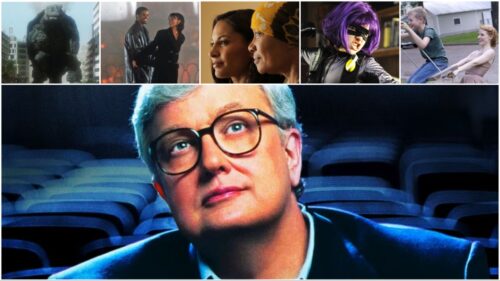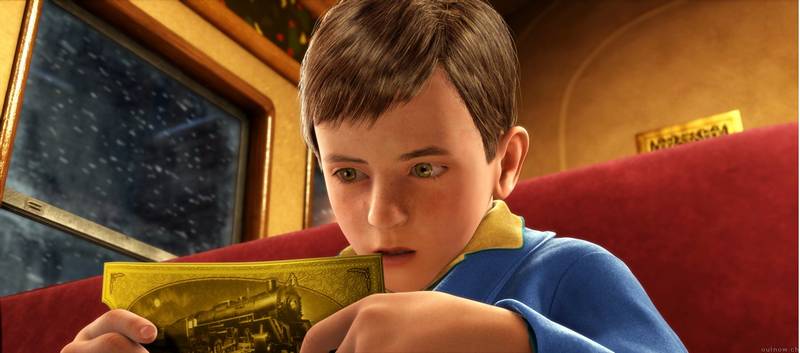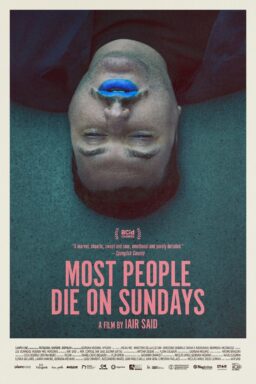
The first time I heard gay marriage mentioned, I was incredulous. Two gay people couldn’t get married! It simply…well, it wasn’t done. I wasn’t objecting to their homosexuality. I was objecting to the disturbance caused to my mental categories.
Love and marriage, love and marriage
Go together like a horse and carriage
Dad was told by mother
You can’t have one,
You can’t have none,
You can’t have one without the other!
In recent years, dad is being told something else by brother.
I must have heard about gay marriage sometime in the 1970s. It made an impression when it was mentioned by my mother. We had never discussed homosexuality. Neither of my parents did. Oh it might be observed, “Look at that Liberace! He sure is queer.” It wasn’t a criticism so much as a wonderment, as if he were playing with three hands.
After selling our family home in Urbana, my mother lived in a series of rentals. One was a nice one-bedroom, living-dining-kitchen combo across from Urbana High School. She began shopping at the White Hen Pantry next door, and being my mother she made friends. It was owned by two women who remain in my mind as Dee and Dollie, although I wouldn’t swear to it. When they discovered she was a retired bookkeeper, they asked her to come to work for them, keeping the daily books and occasionally handling the cash register.
My mother loved this job. She already knew half the people who came in, and made friends with the rest. She made observations about Dee and Dollie: “They live in the same building.” Then: “Dee and Dollie invited me over for dinner. They’re roommates.” Eventually a telephone call: “Honey, you’ll never guess this! Dee and Dollie just announced their engagement!”
Me: “What does that mean?”
My mother: “I don’t know. I don’t see how they can get married. But they gave each other the nicest rings.”
The next time I was home my mom took me to the White Hen to meet them. I said “congratulations,” and they put their arms around each other’s waists and beamed. They were in their 30s, robust and jolly. At dinner that night I asked my mother, “When did you first realize they were lesbians?” She said: “That was obvious right from the start. With most people, you can just tell right off the bat.”

I’ve sometimes, not always, found that to be the case. I’d never realized my mother did. I personally believed we had gay people in our family, but this had never been mentioned by anyone, and I wasn’t going to start now.
My mother confided that Dee and Dollie had asked her to be one of their maids of honor.
“My land! I was never so surprised in my life!”
“What did you say?”
“I told them of course I would. They’ve both been so nice to me.”
“What kind of a marriage is it going to be?”
“It can’t be a church wedding, that’s for sure. One of their friends is some kind of a minister, and he’s going to perform the ceremony in somebody’s back yard. I’ve been helping them with their wedding plans, because they don’t seem to know the first thing about planning a wedding.”
What struck me was that my mother, born on a farm near Taylorville in 1912, seemed to take this so casually. I doubt she would have been pleased if one day I’d suddenly announced I was gay. But it was all right for other people. The Catholic Church forbade it, but then the Church said you shouldn’t do a lot things that people just went right ahead and did anyway.

In the years since then I’ve known a fair share of gay couples who seemed as established and content as other couples, some more some less. In a society that was slowly outgrowing the traditions of patriarchy and matriarchy, they’d made a lateral move into humanarchy. The idea of them being joined in a civil union was a no-brainer. They’d cast their lot together, shared their duties, had an implicit agreement to stand by each other, and certainly deserved to have their relationship recognized by the state if only for reasons of ownership and inheritance. Everyone had heard of couples who’d been together for years, only for one to be banished from a deathbed by the other’s family. That was cruel.
I interviewed a lot of show business people, and many of them were gay. Despite my mother’s theory, I didn’t always catch on. Rock Hudson’s homosexuality must have been an open secret to all of Hollywood and half of America, but not to me. I interviewed Jodie Foster when she was 12, and she came by herself to lunch at the Old World Restaurant on Sunset, no mother, no press agent. She was mature and confident. She was a charming girl, as anyone who has seen “Freaky Friday” will testify. Did I think then that she was gay? Certainly not. Did she? When it became generally known many years later, I can’t say I was surprised. But she made it her own business, and in interviews I make it a practice to never discuss personal matters unless the subject brings it up. A lot of them do. At the end of the day, you get better interviews if you’re a sympathetic listener than an attorney for the prosecution.
Now the idea of gay marriage is much before us. They’ve been made legal in some states. They are fiercely opposed, most often on religious grounds. Politicians find it prudent to play to both sides of the street by saying they “have no opposition to civil ceremonies.” I’m disappointed in Obama for taking that approach. He supports the civil rights but opposes gay marriage while citing his church’s teachings. At least you can’t accuse him of catering to his base. I would have preferred that he’d added that a religious marriage is a matter for each church, but that the state should make no distinction in the matter of a civil ceremony.

Some politicians are held hostage by their bases. The Bush administration is thought to have been the most homophobic in recent history. In 2004, George W. Bush endorsed a constitutional amendment to ban same-sex marriages. This was backed by anti-marriage forces seeking a way to negate the actions of individual states in legalizing gay marriage.
But let’s look more closely at his administration. Dick Cheney has a lesbian daughter, and a year ago he made a statement in support of same-sex marriages, adding that it should “traditionally” left up to each state. Even at the time, he declined to get on board, only observing that it was “administration policy.” We learned earlier this year that Laura Bush supports the right to gay marriage. Now we learn that Ken Mehlman, head of the Republican National Committee during that time, who spearheaded the fight for the constitutional amendment, is gay.
I heard on NPR today that an interviewer for the Atlantic asked Mehlman what Bush’s reaction to his news was. Mehlman replied that some days before he made his announcement, when rumors of it were circulating in GOP inner circles, George Bush reached out to him and offered help and encouragement. I was touched to learn this. Now we have to wonder: If that’s the way Bush, Cheney and Mehlman thought, why was the administration’s anti-gay agenda being pushed?
Was it because it seemed like a popular policy at the time? Was it playing to the party’s southern evangelical base? Whatever the reasons, we now know that the word has gone out to the GOP’s 2010 candidates to soft-pedal opposition to homosexuality and gay marriage. Public opinion is perceived to be shifting on the topic. It seems odd to me that on this issue, Barack Obama is more conservative than Dick Cheney, George Bush and my mother.
☛ Explaining clearly why civil unions are not a fair substitute for marriage.
☛ [ 7:52 a.m. 8/27/10. Rewritten to draw a distinction between Obama’s religious beliefs and his policy on civil marriage. Corrects to observe Cheney remained aloof from the Constitutional amendment in 1994. Changes “The Parent Trap” to “Freaky Friday.” ]
☛ [ 1:51 p.m. 8/27. My closing line is cute, but a reader named Daniel Lebovic has shown me that it’s not fair to Obama. I’m taking the unusual step of reprinting it here as a correction:
“If that’s the way Bush, Cheney and Mehlman thought, why was the administration’s anti-gay agenda being pushed?”
I have to address the qualifier “if” here, because I’m not sure that any of these three men “thought” in 2004 or think now that either gay marriage is a good thing, that homosexuality is genetically inherited, or that what Republicans derisively call the “homosexual lifestyle” (i.e. gay sex) is “acceptable” behavior.
Bush may simply be offering to help a friend. Such an offer of help does not indicate what Bush thinks about the fact that Ken Mehlman is gay, or what he thinks about gay people in general. We do know this about George Bush and Barack Obama:
1) Bush supported the Constitutional Amendment while in office. Obama does not (one might then ask how the latter can be deemed, at least if we are comparing the two while they were sitting Presidents, “more conservative” on the gay marriage issue). Obama repealed the HIV travel ban. Bush did not. The Matthew Shepard Act, officially the Matthew Shepard and James Byrd, Jr. Hate Crimes Prevention Act, was signed into law by President Obama in October. It expands the federal hate crimes law to include crimes motivated by a victim’s actual or perceived gender, sexual orientation, gender identity, or disability. While Bush was Governor of Texas, a hate crimes law was passed… over his veto. He did not support hate crime legislation as President. The Employment Non-Discrimination Act (ENDA) is a proposed bill in the Congress that would prohibit discrimination against employees on the basis of sexual orientation or gender identity for civilian nonreligious employers with over 15 employees. President Barack Obama supports the bill’s passage, unlike George W. Bush, who threatened to veto the measure.
2)Obama claims to be an advocate of repeal of “Don’t Ask Don’t Tell” (I say appears to be, because, to the extent he seems conservative on any issues relating to gay people, it may simply very well be that if he publicly and vociferously expresses his support for, say, gay marriage, independent voters (among others) or non-liberal voters who put him into office in 2008 will punish his party at the polls in 2010 and him in 2012. What do any of these men truly believe? I do not know. But we can (as we must, as long as the human brain is hard-wired to associate actions with beliefs) know how they have acted, which leads me to 3): George W. Bush, while he was governor of Texas, supported that state’s anti-sodomy law. The law made sodomy illegal, but only between two persons of the same sex – not between a man and a woman. The Supreme Court struck the law down in 2003. 4) Perhaps most tellingly, Bush made the following remarks in the final Presidential debate with Kerry (the contrast with Kerry’s remark is instructive):
SCHIEFFER: Both of you are opposed to gay marriage. But to understand how you have come to that conclusion, I want to ask you a more basic question. Do you believe homosexuality is a choice?
BUSH: You know, Bob, I don’t know. I just don’t know. I do know that we have a choice to make in America and that is to treat people with tolerance and respect and dignity. It’s important that we do that. And I also know in a free society people, consenting adults can live the way they want to live. And that’s to be honored. But as we respect someone’s rights, and as we profess tolerance, we shouldn’t change — or have to change — our basic views on the sanctity of marriage. I believe in the sanctity of marriage. I think it’s very important that we protect marriage as an institution, between a man and a woman. I proposed a constitutional amendment. The reason I did so was because I was worried that activist judges are actually defining the definition of marriage, and the surest way to protect marriage between a man and woman is to amend the Constitution. It has also the benefit of allowing citizens to participate in the process. After all, when you amend the Constitution, state legislatures must participate in the ratification of the Constitution. I’m deeply concerned that judges are making those decisions and not the citizenry of the United States. You know, Congress passed a law called DOMA, the Defense of Marriage Act. My opponent was against it. It basically protected states from the action of one state to another. It also defined marriage as between a man and woman. But I’m concerned that that will get overturned. And if it gets overturned, then we’ll end up with marriage being defined by courts, and I don’t think that’s in our nation’s interests. SCHIEFFER: Senator Kerry?
KERRY: We’re all God’s children, Bob. And I think if you were to talk to Dick Cheney’s daughter, who is a lesbian, she would tell you that she’s being who she was, she’s being who she was born as. I think if you talk to anybody, it’s not choice. I’ve met people who struggled with this for years, people who were in a marriage because they were living a sort of convention, and they struggled with it…But I also believe that because we are the United States of America, we’re a country with a great, unbelievable Constitution, with rights that we afford people, that you can’t discriminate in the workplace. You can’t discriminate in the rights that you afford people. You can’t disallow someone the right to visit their partner in a hospital. You have to allow people to transfer property, which is why I’m for partnership rights and so forth.











